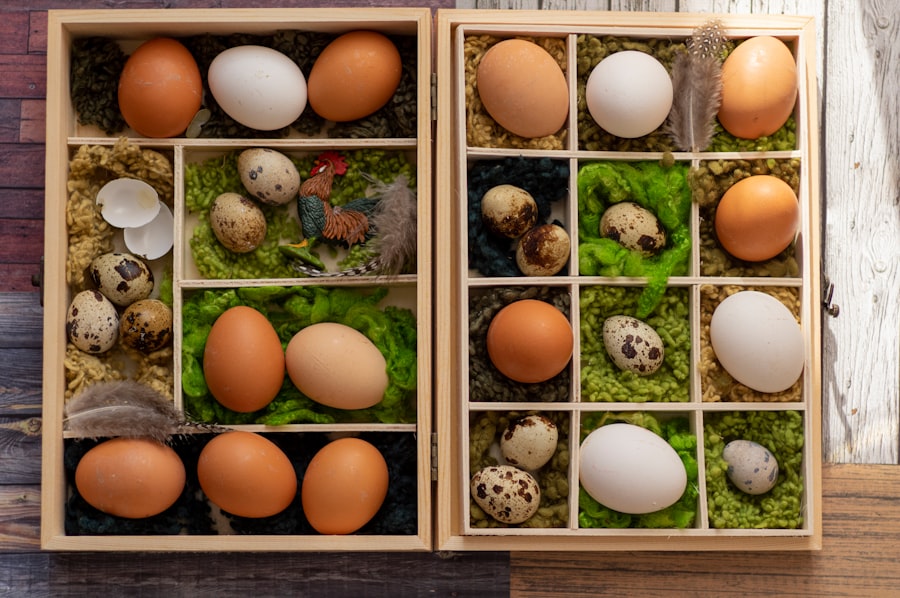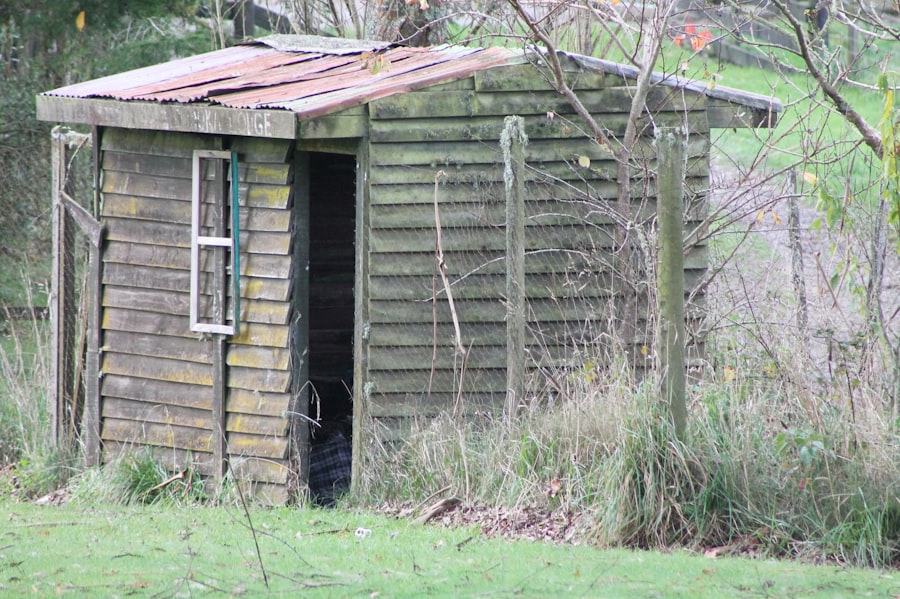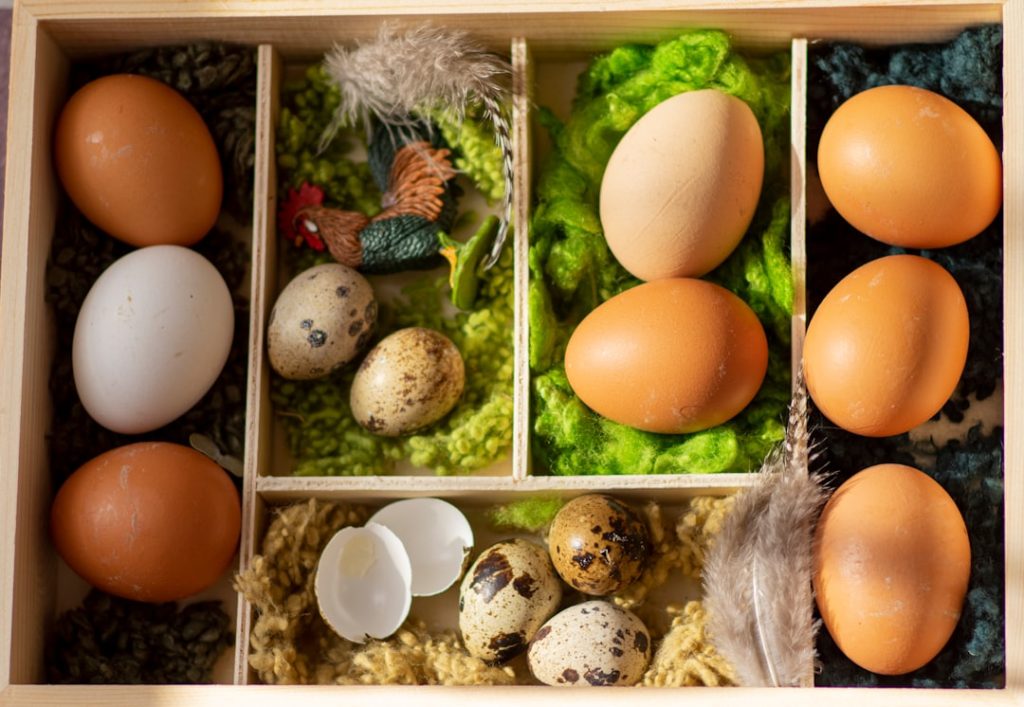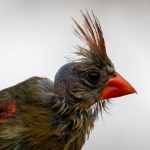When selecting chicken breeds, it’s essential to consider your specific goals and environmental conditions. Different breeds excel in various areas, such as egg production, meat quality, or adaptability to certain climates. For egg production, breeds like Rhode Island Red and Leghorn are popular choices due to their high laying capabilities.
If meat production is the primary objective, Cornish Cross and Plymouth Rock breeds are known for their rapid growth and meat quality. Climate plays a crucial role in breed selection. Cold-hardy breeds like Orpington and Wyandotte thrive in colder regions, while Sussex and Australorp are better suited for warmer climates.
Choosing a breed that is well-adapted to your local environment is vital for the chickens’ health and productivity. Other factors to consider include space requirements, temperament, and foraging abilities. Some breeds are more docile and suitable for families with children, while others are better foragers and require less supplemental feed.
Ultimately, the right breed choice depends on a combination of factors, including your specific needs, available resources, and local conditions. Careful consideration of these elements will contribute to a successful and rewarding chicken-raising experience.
Table of Contents
- 1 Building a Coop
- 2 Providing Proper Nutrition
- 3 Ensuring Safety and Security
- 4 Maintaining Cleanliness
- 5 Monitoring Health and Wellness
- 6 Handling Eggs and Chicken Waste
- 7 FAQs
- 7.1 What are the benefits of keeping backyard chickens?
- 7.2 What are the basic requirements for keeping backyard chickens?
- 7.3 What breeds of chickens are best for backyard settings?
- 7.4 What should I feed my backyard chickens?
- 7.5 How do I protect my backyard chickens from predators?
- 7.6 What are some common health issues for backyard chickens?
- 7.7 Do backyard chickens require any special permits or regulations?
Key Takeaways
- Consider the climate, space, and purpose when choosing the right breed of chicken for your coop.
- When building a coop, prioritize ventilation, predator-proofing, and easy access for cleaning and egg collection.
- Provide proper nutrition by offering a balanced diet of commercial feed, fresh water, and occasional treats.
- Ensure safety and security by regularly inspecting the coop for any potential hazards and reinforcing fencing and locks.
- Maintain cleanliness by regularly cleaning the coop, nesting boxes, and feeding areas to prevent disease and pests.
Building a Coop
Size Matters
When building a coop, it’s essential to ensure that it’s large enough to comfortably accommodate the number of chickens you plan to raise. Chickens need plenty of space to move around, roost, and lay eggs, so it’s important to provide them with enough room to do so.
Ventilation and Air Quality
In addition to size, the coop should be well-ventilated to ensure good air circulation and prevent the buildup of moisture and ammonia, which can lead to respiratory issues in chickens.
Materials and Design
The coop should be constructed from sturdy, durable materials that can withstand the elements and protect the chickens from predators. It’s also important to consider the layout and design of the coop, including features like nesting boxes, roosts, and access doors for cleaning and maintenance.
Overall, building a coop is a critical step in successfully raising chickens, and it’s important to carefully consider factors like size, ventilation, materials, and design in order to provide your chickens with a safe and comfortable living environment.
Providing Proper Nutrition

Proper nutrition is essential for the health and well-being of your chickens. A well-balanced diet is crucial for ensuring that your chickens receive the nutrients they need to thrive and produce eggs or meat. When it comes to feeding chickens, there are several important factors to consider.
First and foremost, it’s important to provide your chickens with a high-quality commercial feed that is specifically formulated for their age and purpose. For example, if you’re raising laying hens, you’ll want to provide them with a layer feed that is high in calcium to support egg production. If you’re raising meat birds, you’ll want to provide them with a broiler feed that is high in protein to support growth and muscle development.
In addition to commercial feed, it’s also important to provide your chickens with access to fresh water at all times. Chickens need plenty of water to stay hydrated and healthy, so it’s important to regularly check their water supply and ensure that it is clean and free of contaminants. Additionally, it’s important to supplement your chickens’ diet with treats like fruits, vegetables, and grains to provide them with additional nutrients and keep them engaged and entertained.
Overall, providing proper nutrition is essential for the health and well-being of your chickens, and it’s important to carefully consider factors like commercial feed, water supply, and supplemental treats in order to ensure that your chickens receive the nutrients they need to thrive.
Ensuring Safety and Security
Ensuring the safety and security of your chickens is essential for protecting them from predators and other potential threats. Chickens are vulnerable to a wide range of predators, including raccoons, foxes, hawks, and even domestic pets like cats and dogs. It’s important to take proactive measures to protect your chickens from these threats in order to ensure their safety and well-being.
One of the most effective ways to protect your chickens from predators is to build a secure coop and run that is designed to keep predators out. This may include features like sturdy fencing, predator-proof latches on doors and windows, and even underground barriers to prevent digging. In addition to protecting your chickens from predators, it’s also important to protect them from other potential threats like extreme weather conditions and disease.
This may include providing them with shelter from harsh weather, such as heat lamps in cold weather or shade in hot weather, as well as regularly cleaning and disinfecting their living environment to prevent the spread of disease. It’s also important to regularly inspect your chickens for signs of illness or injury and seek veterinary care when necessary. Overall, ensuring the safety and security of your chickens is essential for protecting them from predators, extreme weather conditions, and disease, and it’s important to take proactive measures to keep them safe and healthy.
Maintaining Cleanliness
Maintaining cleanliness in your chicken coop is essential for preventing the spread of disease and ensuring the health and well-being of your chickens. Chickens produce a significant amount of waste, including droppings and bedding material, which can quickly accumulate and create unsanitary conditions if not properly managed. It’s important to regularly clean and maintain your chicken coop in order to prevent the buildup of waste and reduce the risk of disease.
This may include regularly removing soiled bedding material, cleaning surfaces with a disinfectant solution, and providing proper ventilation to prevent the buildup of moisture and ammonia. In addition to regular cleaning, it’s also important to properly manage waste disposal in order to prevent environmental contamination. This may include composting waste material for use as fertilizer in your garden or disposing of it in a responsible manner that minimizes its impact on the environment.
It’s also important to regularly inspect your chicken coop for signs of pests like mites or rodents and take proactive measures to prevent infestations. Overall, maintaining cleanliness in your chicken coop is essential for preventing the spread of disease and ensuring the health and well-being of your chickens, and it’s important to regularly clean and maintain their living environment in order to keep them safe and healthy.
Monitoring Health and Wellness

Recognizing Signs of Illness or Injury
Regular monitoring is essential to address any issues promptly. This involves observing their behavior and appearance for signs of distress or discomfort, as well as regularly checking their droppings for abnormalities.
Regular Veterinary Care
In addition to monitoring their health, providing your chickens with regular veterinary care is vital to prevent and treat potential health issues. This includes vaccinations against common diseases like Marek’s disease or Newcastle disease, as well as regular check-ups with a veterinarian who specializes in poultry care.
A Well-Balanced Diet for Optimal Health
A well-balanced diet that meets their nutritional needs is essential to support their overall health and wellness. By providing a nutritious diet, you can help keep your chickens healthy and thriving.
Handling Eggs and Chicken Waste
Handling eggs and chicken waste properly is essential for ensuring food safety and environmental responsibility. When collecting eggs from your chickens, it’s important to handle them with care in order to prevent contamination by bacteria or other pathogens. This may include regularly collecting eggs from nesting boxes and promptly refrigerating them in order to maintain their freshness and quality.
It’s also important to regularly clean nesting boxes with a disinfectant solution in order to prevent the buildup of bacteria or parasites that could contaminate eggs. In addition to handling eggs properly, it’s also important to manage chicken waste in a responsible manner that minimizes its impact on the environment. This may include composting waste material for use as fertilizer in your garden or disposing of it in a responsible manner that prevents contamination of soil or water sources.
It’s also important to regularly clean and maintain your chicken coop in order to prevent the buildup of waste material that could create unsanitary conditions or attract pests. Overall, handling eggs and chicken waste properly is essential for ensuring food safety and environmental responsibility, and it’s important to take proactive measures to manage these materials in a responsible manner. In conclusion, raising chickens can be a rewarding experience that provides you with fresh eggs or meat as well as an opportunity to connect with nature.
However, it’s important to carefully consider factors like breed selection, coop design, nutrition, safety measures, cleanliness practices, health monitoring, and waste management in order to successfully raise healthy and happy chickens. By taking proactive measures to provide your chickens with a safe and comfortable living environment as well as proper nutrition and healthcare, you can ensure that they thrive and provide you with years of enjoyment.
If you’re considering keeping backyard chickens, you may also be interested in learning about the ideal number of chickens for a family of four. This article from Poultry Wizard discusses how many chickens you need to provide a steady supply of eggs for a family of four. Click here to read more about finding the right balance of chickens for your family’s needs.
FAQs
What are the benefits of keeping backyard chickens?
Keeping backyard chickens can provide a sustainable source of fresh eggs, natural pest control, and fertilizer for your garden. It can also be a rewarding and educational experience for both adults and children.
What are the basic requirements for keeping backyard chickens?
To keep backyard chickens, you will need a secure coop or shelter to protect them from predators and the elements, access to fresh water and chicken feed, and a suitable outdoor space for them to roam and forage.
What breeds of chickens are best for backyard settings?
Some popular breeds for backyard chickens include Rhode Island Reds, Plymouth Rocks, and Australorps. These breeds are known for their hardiness, good egg production, and friendly dispositions.
What should I feed my backyard chickens?
Backyard chickens should be fed a balanced diet of commercial chicken feed, supplemented with kitchen scraps, grains, and greens. It’s important to provide them with access to fresh water at all times.
How do I protect my backyard chickens from predators?
To protect your backyard chickens from predators, you should ensure that their coop is secure and predator-proof, and consider using fencing or netting to create a safe outdoor space for them to roam.
What are some common health issues for backyard chickens?
Common health issues for backyard chickens include parasites, respiratory infections, and egg-laying problems. It’s important to monitor your chickens for signs of illness and consult a veterinarian if necessary.
Do backyard chickens require any special permits or regulations?
The regulations for keeping backyard chickens vary by location, so it’s important to check with your local government or homeowners’ association to determine if any permits or regulations apply to keeping chickens in your yard.
Meet Walter, the feathered-friend fanatic of Florida! Nestled in the sunshine state, Walter struts through life with his feathered companions, clucking his way to happiness. With a coop that’s fancier than a five-star hotel, he’s the Don Juan of the chicken world. When he’s not teaching his hens to do the cha-cha, you’ll find him in a heated debate with his prized rooster, Sir Clucks-a-Lot. Walter’s poultry passion is no yolk; he’s the sunny-side-up guy you never knew you needed in your flock of friends!







